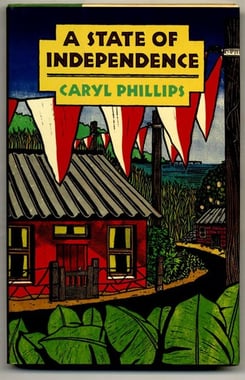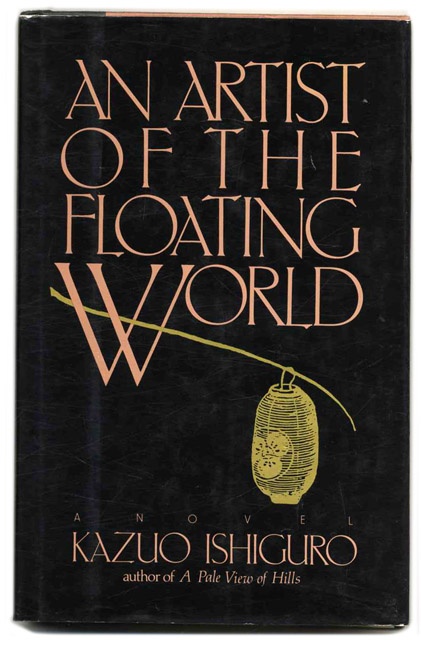A reader is commonly excited by a friendship between great authors. If only one could have eavesdropped on the conversations of Nathaniel Hawthorne and Herman Melville. Or to have been a fly on the wall in Geneva, as Lord Byron and Shelley chatted the night away (Percy Shelley, that is—Mary Shelley maintained a polite dislike for the Don Juan poet). These friendships, naturally, have perished with their authors. But that does not mean our age is without its own. One of today’s most remarkable literary alliances is to be found in the friendship between novelists Kazuo Ishiguro and Caryl Phillips.
 It’s true that both Phillips and Ishiguro come from similar backgrounds. Each is a Briton whose parents emigrated to the country shortly after his birth—with Ishiguro from Japan and Phillips from St. Kitts in the Caribbean. But what really joined the pair together was their editor, Robert McCrum. McCrum, who worked at Faber & Faber for over a decade, also put out a list of the 100 best English language novels for The Guardian last year. He was even sure to put Kazuo Ishiguro’s An Artist of the Floating World (1986) in that happy hundred, among the likes of Tristram Shandy and Middlemarch.
It’s true that both Phillips and Ishiguro come from similar backgrounds. Each is a Briton whose parents emigrated to the country shortly after his birth—with Ishiguro from Japan and Phillips from St. Kitts in the Caribbean. But what really joined the pair together was their editor, Robert McCrum. McCrum, who worked at Faber & Faber for over a decade, also put out a list of the 100 best English language novels for The Guardian last year. He was even sure to put Kazuo Ishiguro’s An Artist of the Floating World (1986) in that happy hundred, among the likes of Tristram Shandy and Middlemarch.
Even more, both authors remain very active. Last year saw the release of novels from each of them, with Ishiguro’s The Buried Giant and Caryl Phillips’ The Lost Child. With Giant set in a mythic, Arthurian England, and Lost Child with its allusions to Wuthering Heights, each title tackles and distorts the historical myth of their adopted Britain.
The authors are doubtlessly aware of their manifold origins and influences. Neil Gaiman said of Ishiguro last year that “he does not ever write the same novel, or even the same type of novel, twice.” Caryl Phillips has jested that when he walks into a bookstore in America, he is never sure where his work will be stocked. Will he be in British Literature? Black Literature? Perhaps they only glanced at the name, and will put him in Women’s Studies? And for those who ask Ishiguro about his roots, he insists that one merely ends up “a funny heterogeneous mixture.” He grew up with Japanese parents, with the language and customs of country intact. But he knew nearly nothing of Japan for his first three decades of life. His influences are often Western, and he counts Marcel Proust and Angela Carter among them. Ishiguro and Phillips, as surely hybrid authors, can both relate over the public’s consistent need to categorize them.
 What’s the secret to their friendship? Well, it goes beyond a similar background. First, they have nicknames for each other—Ish for Ishiguro and Caz for Caryl. Another feature of their relationship, and perhaps it’s a prudent one, is they don’t talk about each other’s work with each other. They may read one’s latest book, and Caryl may even teach his friend’s books at Yale, but that doesn’t mean they make their work a subject of conversation. Their sensibilities align too, and both admit to having little care for finding similarities between Britain and the lands of their parents. For all the pressures that surround them, Kazuo Ishiguro and Caryl Phillips work and self-identify on their own terms. It is no wonder they are good friends, and we can be thankful we have such writers to look up to in our own time.
What’s the secret to their friendship? Well, it goes beyond a similar background. First, they have nicknames for each other—Ish for Ishiguro and Caz for Caryl. Another feature of their relationship, and perhaps it’s a prudent one, is they don’t talk about each other’s work with each other. They may read one’s latest book, and Caryl may even teach his friend’s books at Yale, but that doesn’t mean they make their work a subject of conversation. Their sensibilities align too, and both admit to having little care for finding similarities between Britain and the lands of their parents. For all the pressures that surround them, Kazuo Ishiguro and Caryl Phillips work and self-identify on their own terms. It is no wonder they are good friends, and we can be thankful we have such writers to look up to in our own time.









